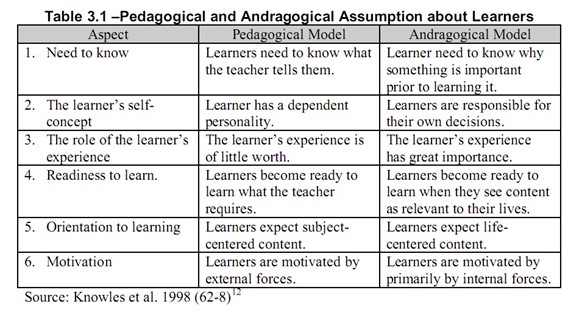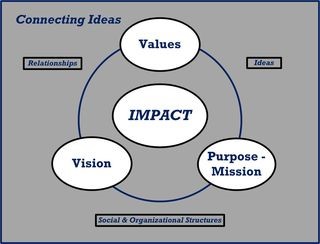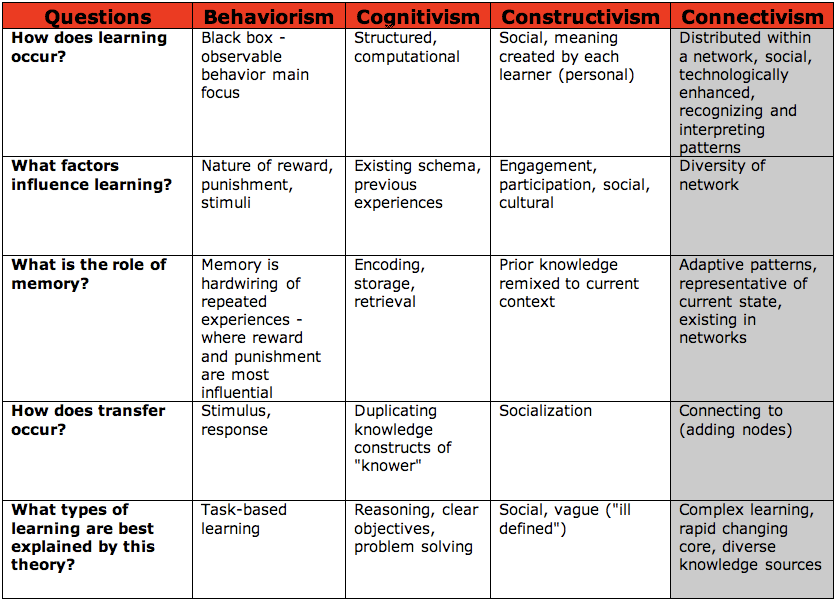Parent University Adult Learning Programs, Research Paper Example
One of the most significant challenges faced by teachers and administrators in America’s public school system is the lack in parental involvement in education (Desforges & Abouchaar, 2003). School districts across the nation have incorporated strategies to improve parental engagement in the learning of students; however, few strategies have indicated maximum results. One strategy that is showing a high level of impact is a program called Parent University. Parent University it is designed to create a comfortable and convenient opportunity for parents to become engaged in their child’s learning.
“Some of the greatest barriers to parent involvement are encountered by schools and districts serving students from low-income households, racial/ethnic minority students, and students with limited English proficiency” (U.S. Department of Education, National Center for Education Statistics, 1998). One of the most significant incentives to encourage parents to participate in the program it is by offering opportunities for parents to continue their education through adult learning programs. By offering parents a convenient and easy transition backed into the classroom, parents will likely increase their participation not only helping their children but also helping themselves. There are four primary pillars to Parent Universities:
- Parents are Teachers
- Parents are Advocates
- Parents are Leaders
- Parents are Learners (Boston Public Schools, 2011)
Parent University gives parents an opportunity to accomplish these key objectives by:
- Parents have an opportunity to experience the learning process which mirrors what takes place in their child’s classroom
- Parents are able to experience academic disciplines to become better participants in helping their children complete homework assignments
- Parent University assist parents in becoming more comfortable with the learning process by equipping them with recommendations and resources to address academic and social issues
- Parents, teachers and administrators have time to discuss and collaborate on student progress and academic expectations
- Parents have an opportunity to work with local colleges to earned college credits which can be applied to certificates, associate degrees, and four year degrees
Parent University allows parents to work at their own pace and in areas that are high interest to them. Developing a learning climate that promotes self-directed learning, high interest areas and increased opportunities to improve self worth, school districts are likely to experience higher levels of parental involvement.
Parent University’s Dual Learning Approach
In almost all cases, parents are children’s first teacher. When parents are involved in the learning process of their children, research indicates that seven critical areas of student academics are affected:
- Increased graduation rates
- Less absenteeism
- Clear educational paths
- Behavior problems are minimized
- Improved attitudes towards administrators, teachers, peers and the learning process
- Increased self esteem
- Less likely to use drugs and alcohol, (Michigan Department of Education, 2001)
As aforementioned, school districts face a high deficiency of parental engagement in schools with high poverty and low socioeconomic populations and as a result, these seven key areas are often compromised or neglected. Research indicates that the probably reason for this neglect is due to the parents of this type population are often single parents, have limited education and have limited proficiency in the English language (U.S. Department of Education, National Center for Education Statistics, 1998). Based on these statistics, in order to combat the lack of parental engagement, it is important for school districts to provide opportunities that will promote programs where parents are the first learners instead of the children. As a result, Parent University incorporates both pedagogical and andragogical approaches to its development program.
According to Knowles, the challenge with using the pedagogical approach with adults is that adults learn differently from children and require different learning stimuli to engage in the learning process (1998):

Table 1. Roberts, M. From: “Applying the Andragogical Model of Adult Learning: A Case Study of the Texas Comptroller’s Fiscal Management Division” by Texas State University. (2007). [Electronic Version].
For this reason, the pedagogical approach alone cannot serve as the primary source to engage parents in parental involvement; therefore, Parent University Programs must incorporate the theories and assumptions surrounding the andragogical approach in order to meet the objectives of the program and to successfully create the outcomes facilitators and parents expect.
Applying Andragogical Principles to Parent University Program Design
“As learners proceed toward meeting unmet needs, resolving unwanted conditions, or reaching desired goals, motives for learning tend to change in relation to any feelings and experiences of success/ failure and satisfaction/ dissatisfaction,” (Baumgartner, Carfalla, & Merriam, 2005, p 432). Knowles provides four assumptions about the adult learner:
- The adult learners’ self-concept moves from dependency to independency or self-directed learning.
- The adult learner accrues a pool of experiences that can be used as a basis on which to develop learning.
- The adult learners’ willingness to learn becomes progressively more associated with the developmental responsibilities of social roles.
- The adult learners “time and curricular perspectives change from postponed to immediacy of application and from subject-centeredness to performance-centeredness” (1989, pp. 44-45).
With the minimal participation results of parental engagement is schools, it is evident that encouraging parents to become more engaged by way of emails, school newsletters, phone calls and other communication venues is insufficient. If consideration is given to Knowles’ four assumptions regarding the adult learner, programs such as Parent University must meet the suppositions regarding how parents learn, when parents learn and why parents learn. It is important for the adult learner to have a personal stake in the learning process and as a result, Parent University must incite parental engagement through adult incentives. In order to meet these incentives, Knowles provides four principles to andragogical process:
- Adults need to be involved in the planning and evaluation of their instruction.
- Experience (including mistakes) provides the basis for learning activities.
- Adults are more interested in learning about subjects that have immediate relevance to their job or personal life.
- Adult learning is problem-centered rather than content-oriented (1984).
Parent University conceptual framework is based upon Knowles’ four principles. The program applies each principle to its curriculum design by specifically addressing the adult population type (i.e. level of education), the adult objective (i.e. college certification) and the expected adult outcome (i.e. to address their child’s classroom behavior issues while obtaining college credits). Parent University integrates Knowles’ approach by incorporating the following structure:
Adults need to be involved in the planning and evaluation of their instruction.
Planning
Most Parent University programs incorporate parental recommendations and planning by sending out invites at the beginning of the school, throughout the school year or quarterly during the school year. Parents are asked to select from the following: (1) Student/Child academic reasons for attending the training (student related objectives) and (2) Professional objectives in completing the training (adult learning objectives).
Evaluation
Generally, attendees are able to complete surveys after the Parent University sessions, during the year, quarterly and at the end of the year. Surveys conducted after the Parent University session primarily focuses on the effectiveness of the facilitator, the effectiveness of the content and recommendations for improvement. Surveys conducted quarterly and throughout the year are primarily focused on the success of the outcome (student progress and adult learning objectives).
Experience (including mistakes) provides the basis for learning activities.
Schools confronted with issues surrounding poverty often have parents who have limited education and professional experiences. The knowledge and skills of these parents are often based on social interactions and personal relationships. Although the collegiate component of the incentive is designed to rectify the educational limitations of the parents, the curriculum design must first cater to the psychological and environmental influences surrounding education. Consequently, the Parent University program must connect both the social and organizational structures in order to meet the overall objective:
Connecting Ideas to Integrate the Social and Organizational Components of Andragogy

Table 2. Brenegar, E. From “Failure: The Social Bond” by Leading Questions. [Electronic Version]. (2008).
By utilizing this method, parents are able to relate environmental and psychological influences to why their children are not progressing in school as well as how these influences also impede their individual successes. Training sessions for meeting this principle can range from Learning Strategies in the Urban Community to Overcoming Fear and Anxiety.
Adults are more interested in learning about subjects that have immediate relevance to their job or personal life.
Local community colleges have joined forces with public schools to provide certification training and college credits to parents who attend Parent Universities (Gibson, 2010). Parents are offered free day and evening classes covering subjects such as basic math, reading, parenting workshops and health and wellness. A large number of the attendees are single parents: The U.S. Census Bureau released a report in November 2009 indicating that there are 13.7 million single parents in the United States and these parents are responsible for raising 21.8 million children under the age of 21. Having access to learning institutions and finding the time to attend classes is difficult for the single parent and as a result, Parent University is able to cater to a large number of these parents by offering continuous improvement classes for attending their student achievement program.
Adult learning is problem-centered rather than content-oriented.
The lack of parental involvement is not always an issue of negligence. The lack of parental involvement in their child’s learning can be a direct result of intimidation of the learning institution as well as insufficient information and resources needed to resolve issues such as student behavior, lack of motivation and psychological challenges. These issues can also be the result of the parent’s limited education and professional knowledge (Stahl, 2004, pp. 1-22). Parent University programs are developed to address the content and behavior centered issues of the pedagogical learning process; however, parents who deficient in secondary education skills and professional development training are able to receive the information they need to address the concerns of their child and gain significant knowledge in resolving their own academic and professional needs.
Parent University and the Five Major Learning Theories
Knowles and Merriam outline five primary learning programs to assist in understanding how and why learning takes place: (1) Behaviorist, (2) Cognitivst, (3) Humanist, (4) Social Learning, and (5) Constructionist (Knowles, Holton & Swanson, 2005):
Five Major Learning Theories

Table 3. Davis, C., Edmunds, E and Bateman-Kelly, V. From: “Connectivism” Department of Educational Psychology and Instructional Technology, University of Georgia. [Electronic Version]. (2010).
According to Knowles, adult learners are independent and self-directed learners who take full responsibility for their actions. The adult learner, most often, required limited direction in the learning process and is reliable on the information that is presented versus the presenter. Adult learners who have limited education and professional development experience and who are highly subjected to environment and psychological changes can learn as a result of multiple factors, independent and self-directed learners.
Knowles asserts that “Adult learning is inextricably intertwined with adult development and adult development occurs along multiple paths and across multiple dimensions. (Day, Harrison & Halpin, p. 146). Unlike pedagogy where the adolescent leaner is dependent on the instructor to direct learning, adult learners can experience learning stimuli as a result of a number of different factors. Each of the five learning theories have merit and are applicable to the andragogical approaches to learning. For the attendees of Parent University programs, however, these individuals often have limited education and professional experience and are highly subjected to environmental and psychological influences. This means that the learning approaches practiced by the Parent University programs are primarily centered on the behaviorist, social learning and constructivist learning theories. In other words, the learning facilitation must have an activities that are rich in behavior centered approaches, interactions and observations that are socially centered and lessons and activities that can be constructed from personal experiences. As an example, below outlines a lesson that encompasses a behavior centered approach, interactions and observations that are socially centered and that can be constructed from personal experiences:
Unit Application
Parent University is teaching a lesson titled “Managing the Difficult Learner.” In this lesson, parents and teachers work together to develop home-school collaborations where both the school and the parent(s) are reinforcing the behaviors that are expected at home and at school. The application part of the lesson requires the parents to apply the skills and techniques learned in addressing how students are expected to respond to their lack of compliance of house and school rules. Parents are placed in groups of five. One parent is given a scenario where he or she takes on the role of a child learner. The child learner in this scenario refuses to complete his or her chores and is refusing to complete their homework assignment. The four remaining parents will collaborate on the best approach to resolve these issues and return to the child/parent to implement their plan:
- Parents are required to develop a resolution strategy in isolation from the child
- Each parent must take on a specific role in addressing the issue with the child (i.e. passive versus authoritarian role)
- Parents are to come up with an alternative plan should the initial plan fall through
Areas of Improvement
From a pedagogical approach, although the strategies used by Parent University programs are generally effective, one area of improvement is the limited use of classroom teachers and the primary use of professional facilitators. Most districts are unable to utilize classroom teachers on a consistent basis due to the associated cost (i.e. salary schedules); therefore, districts are forced to hire individuals who are professional trainers or utilize district administrators. Using classroom teachers is a more effective strategy as they are on the front line of instruction and by doing so parents are able to encounter the actual learning experience that is equivalent to their child.
From an andragogical approach, Parent Universities can improve their strategies by incorporating a more structured environment for learning. As it stands today, Parent Universities utilize limited resources and approaches which mirror how adult learners learn best. These strategies include independent thinking, media-rich activities, experimental approaches and presentations. This restriction may be the result of finding the balance between satisfying the pedagogical approach as well as andragogical methods and due to limited instruction by actual higher education teachers.
Conclusion
“Andragogy relies on the learner engaging in self-directed learning. There is no guarantee that this will occur…” (Neary, 2002, p. 65). Theoretical applications are critical to the continued research and development of andragogy and pedagogical approaches. Organizations and concepts such as Parent University provide the crediting and discrediting of research theories and assumptions. Despite the fact that no theory is a guarantee, adult learning is still a relatively new area of study and there remains tremendous research in understanding how adults learn best.
References
Boston Public Schools. (2011). What is Parent University? Retrieved July 21, 2011 from web: http://www.bostonpublicschools.org/parentuniversity
Brenegar, E. (2008). Failure: The Social Bond. Retrieved July 23, 2011 from web: http://edbrenegar.typepad.com/leading_questions/failure
Day, D., Harrison, M. and Halpin, M. (2009). An Integrative Approach to Leader Development. New York, NY: CRC Press
Desforges, C., & Abouchaar, A. (2003). The Impact of Parental Involvement: Parental Support and Family Education on Pupil Achievement and Adjustment. A Literature Review. Retrieved February 26, 2010 from website http://www.dcsf.gov.uk/research/data/uploadfiles/RR433.pdf
Gibson, B. (2010). First-ever Parent University graduates celebrate a year of hard work. Retrieved July 21, 2011 from web: http://www.thenotebook.org/blog/102662/first-ever-parent-university-graduates-celebrate-year-hard-work
Knowles, M. (1984). Andragogy in Action. San Francisco: Jossey-Bass.
Knowles, M. S. (1989). The making of an adult educator: An autobiographical journey. San Francisco: Jossey-Bass.
Neary, M. (2002). Curriculum Studies in Post-Compulsory and Adult Education. Gloucestershire, UK: Nelson Thornes Publishing
Roberts, Michael S., “Applying the Andragogical Model of Adult Learning: A Case Study of the Texas Comptroller’s Fiscal Management Division” (2007). Applied Research Projects,
Texas State University-San Marcos. Paper 209. http://ecommons.txstate.edu/arp/209 Stahl, J. (2004). Parental Involvement in Education. Retrieved July 20, 2011 from web: http://www.jeffdstahl.com/worksfiles/parentalinvolvement.pdf
U.S. Department of Education. (1998). National Center for Education Statistics. Parent involvement in children’s education: efforts by public elementary schools (NCES 98-032). Washington, DC: U.S. Department of Education, Office of Educational Research and Improvement, National Center for Education Statistics. Retrieved July 20, 2011 from http://nces.ed.gov/pubs98/98032.pdf. S. Census Bureau. (2009). Custodial Mothers and Fathers and Their Child Support: 2007. Retrieved July 23, 2011 from web: http://www.census.gov/prod/2009pubs/p60-237.pdf

Time is precious
don’t waste it!

Plagiarism-free
guarantee

Privacy
guarantee

Secure
checkout

Money back
guarantee






